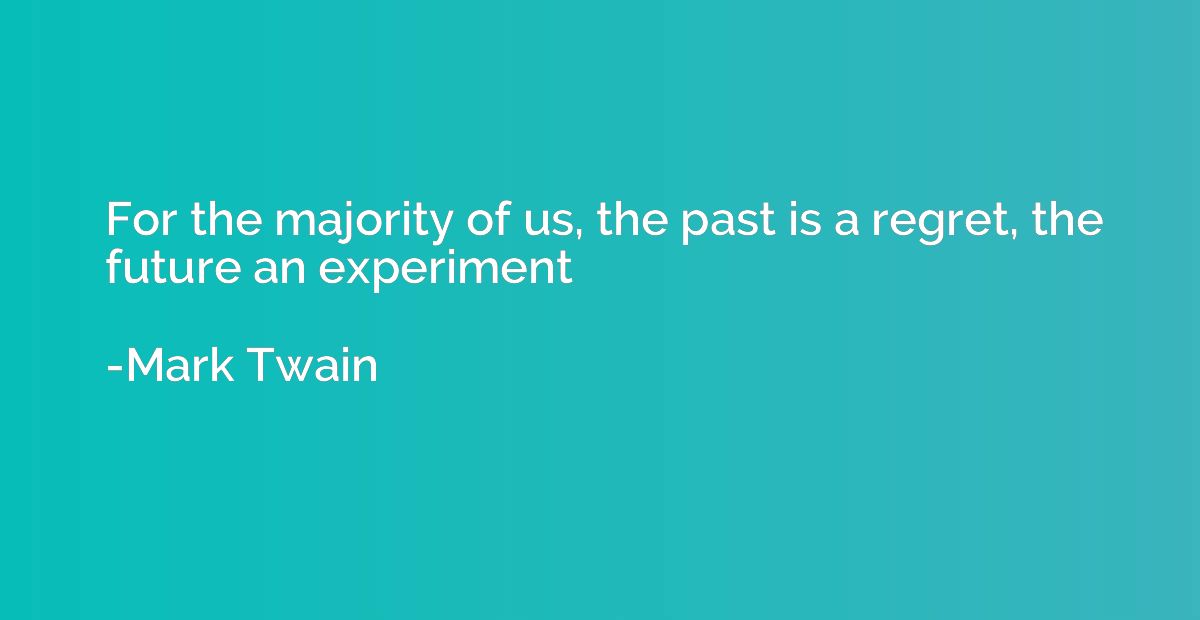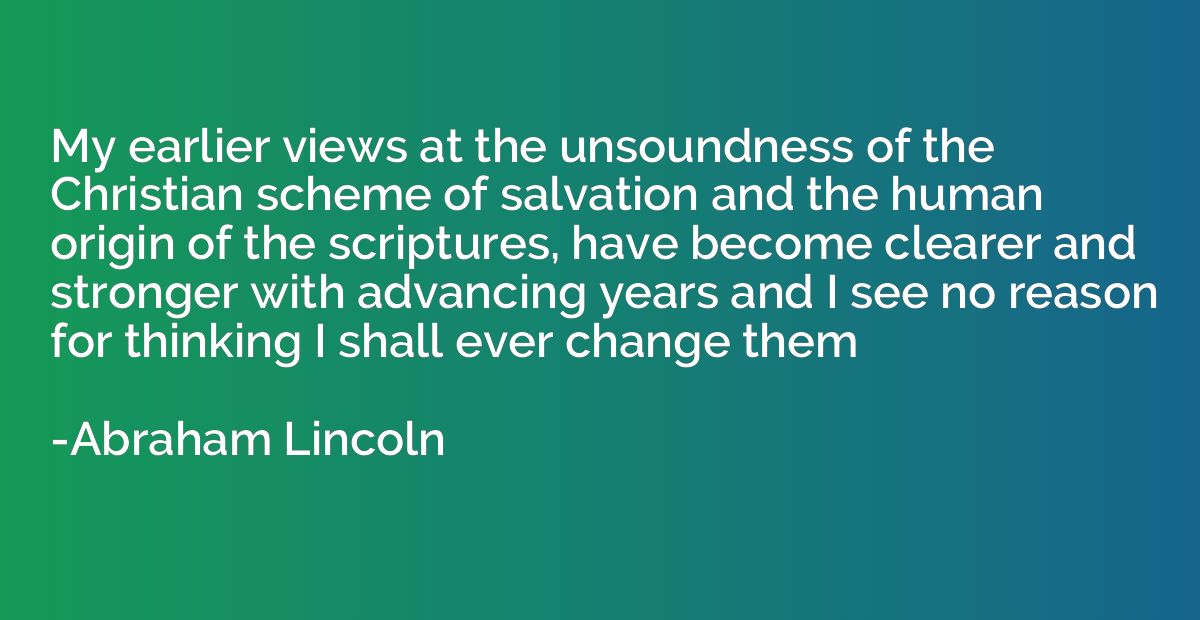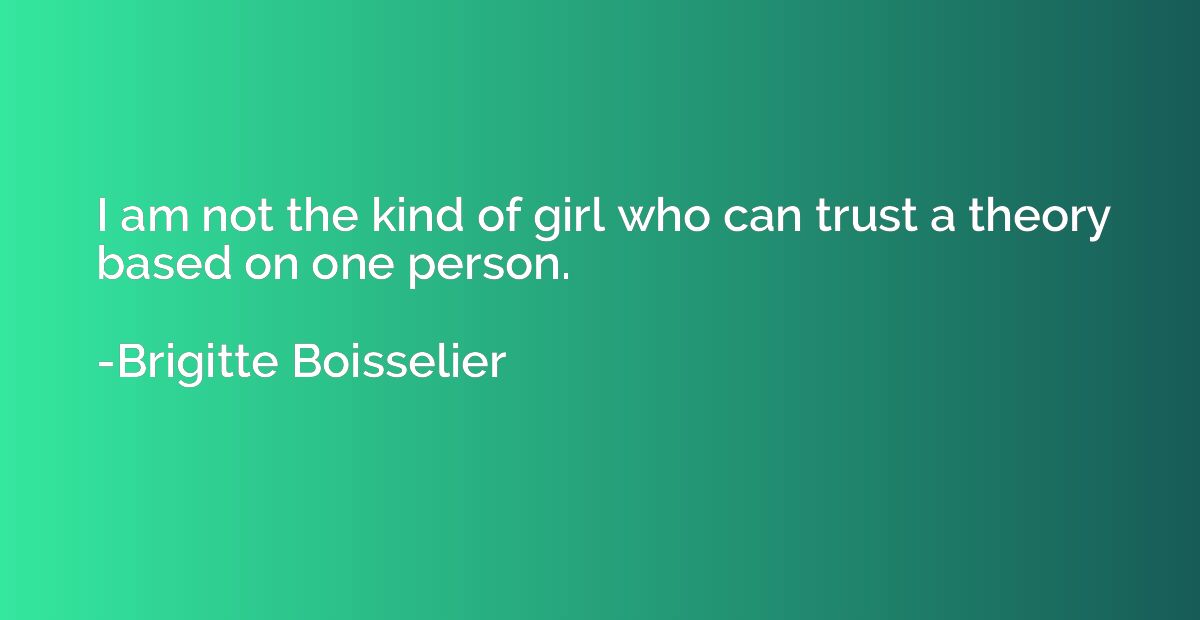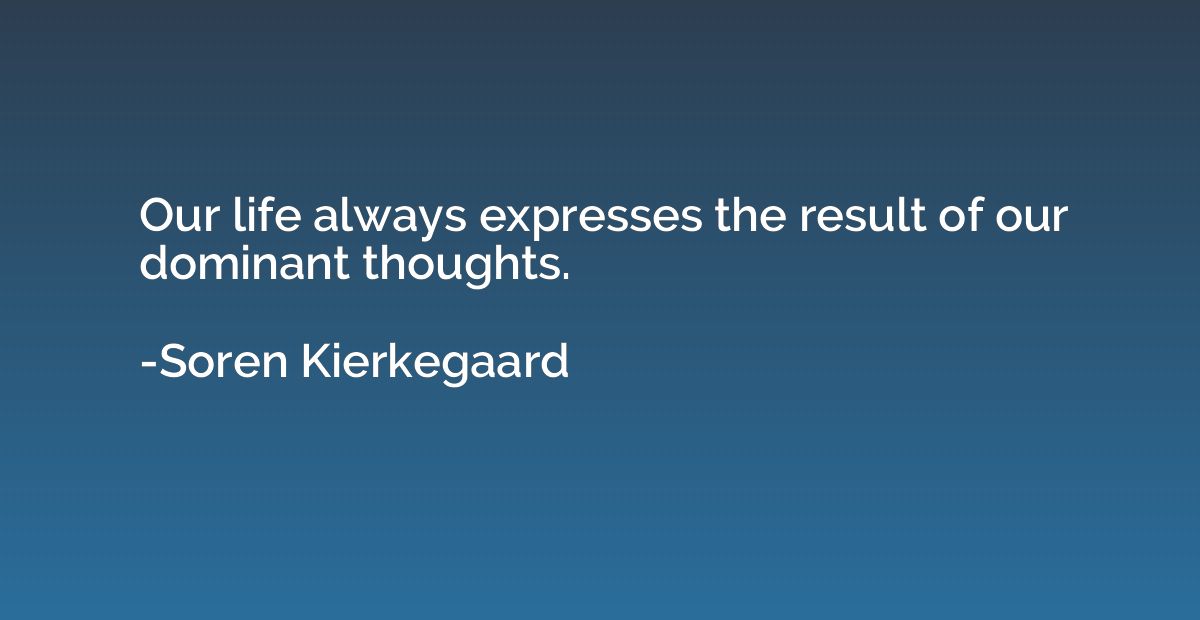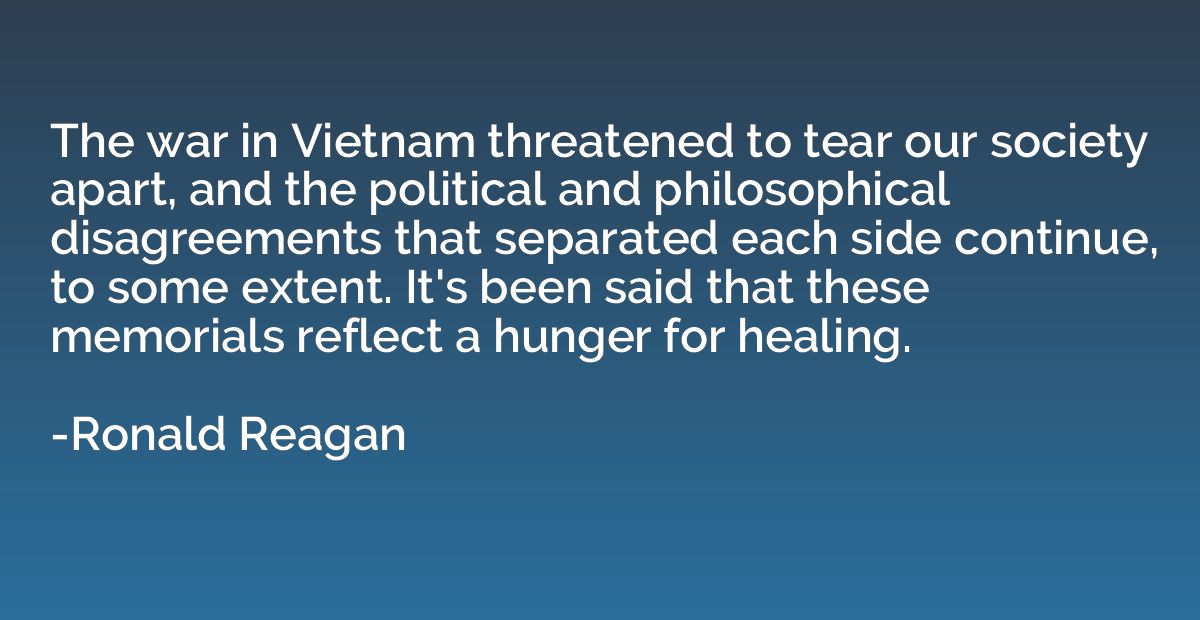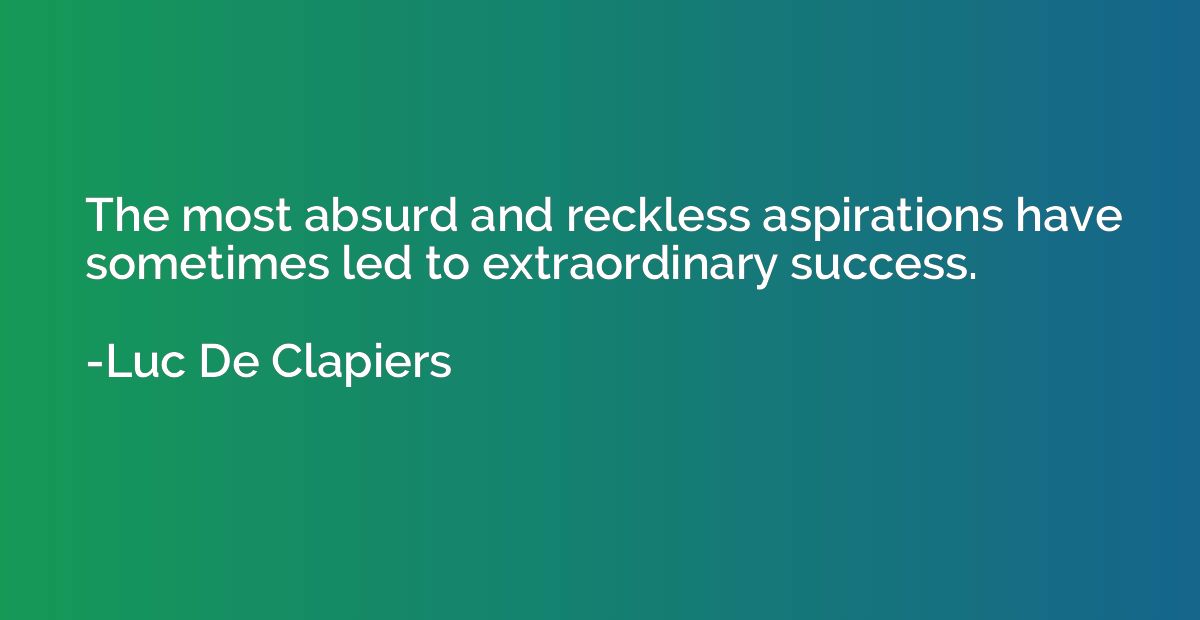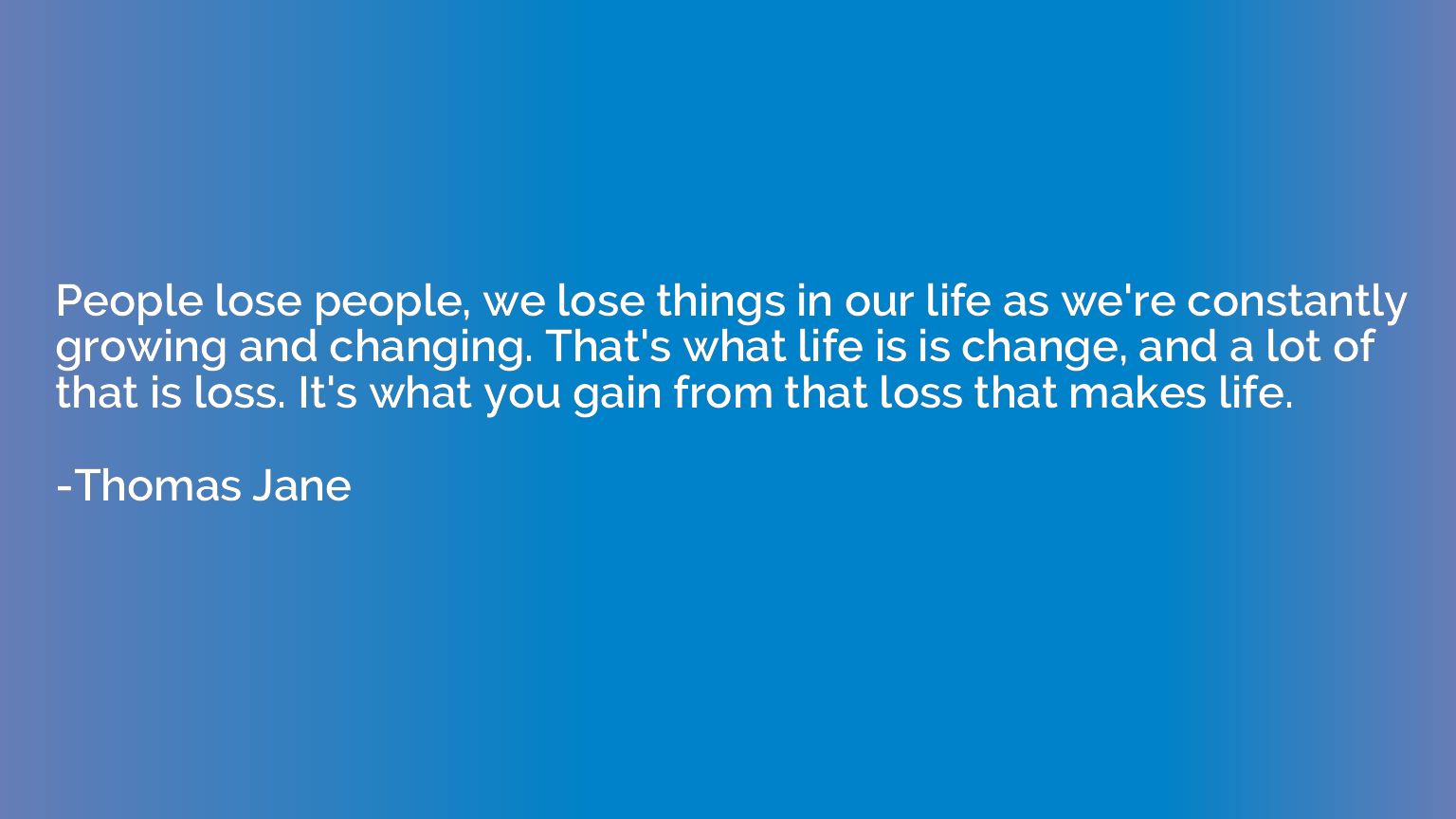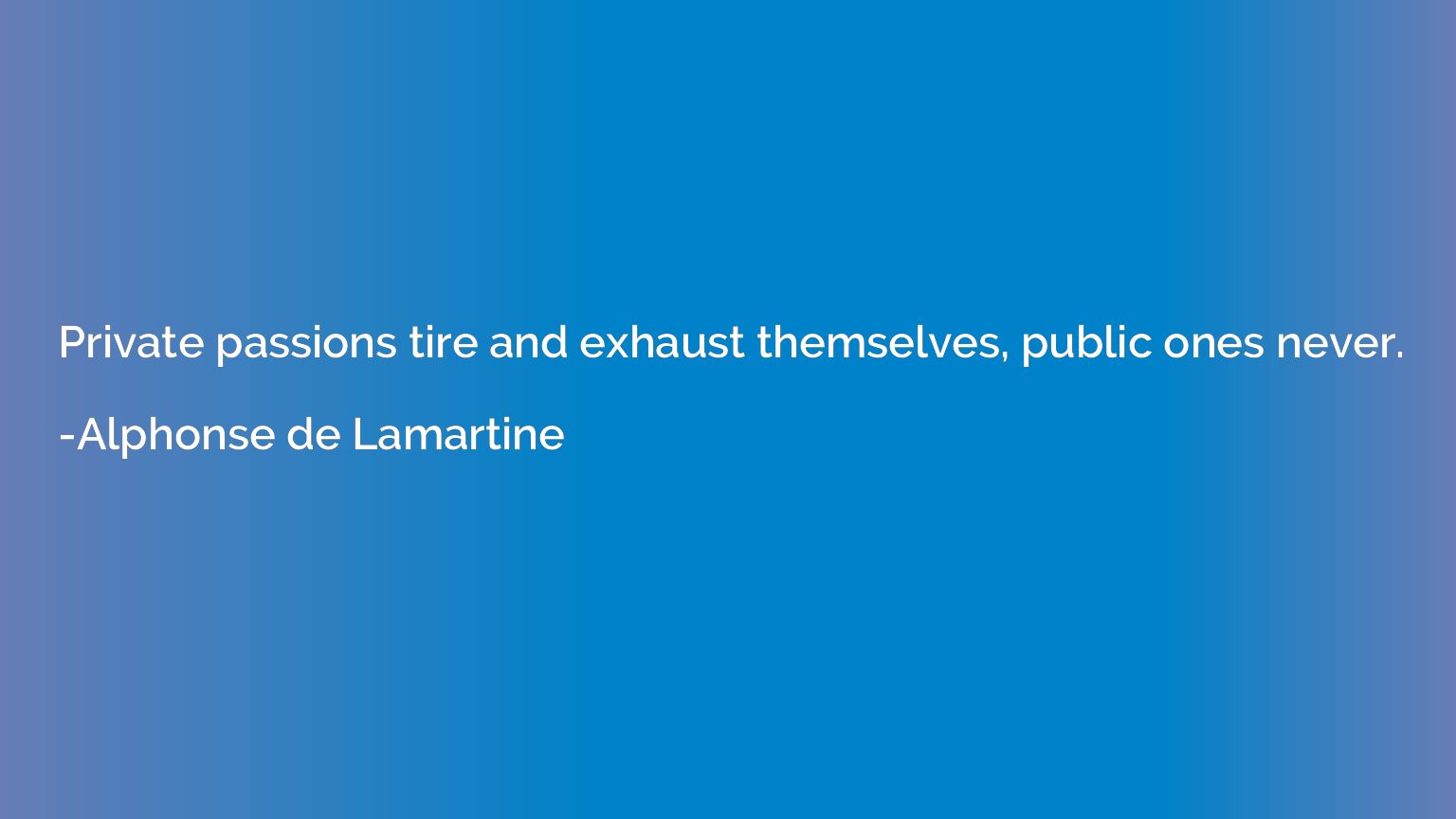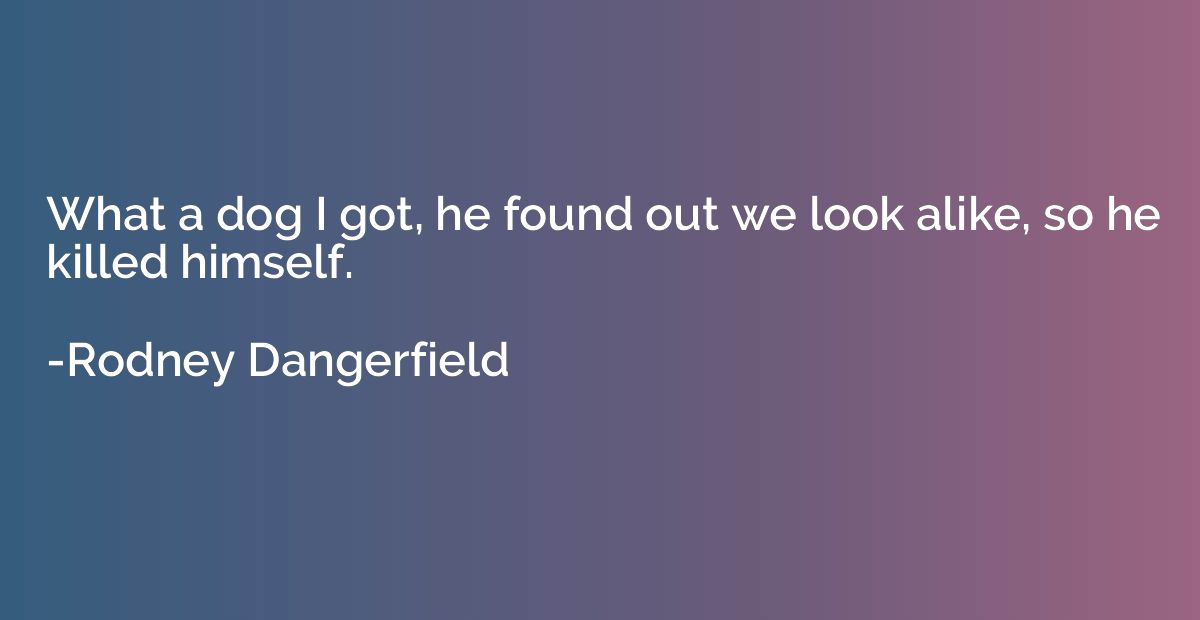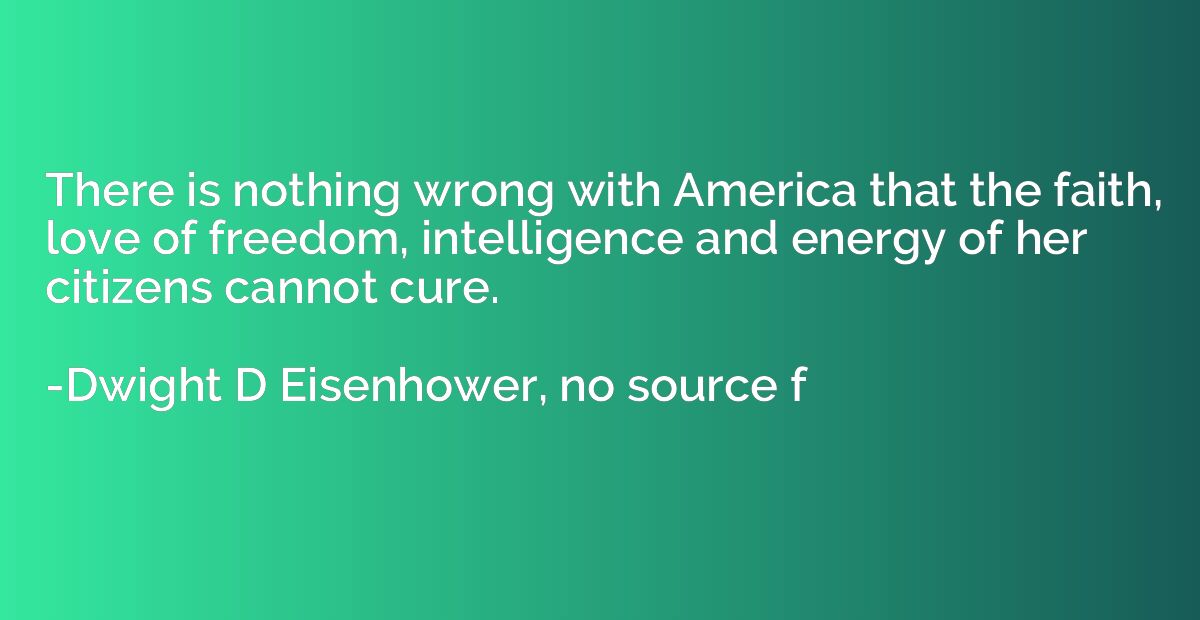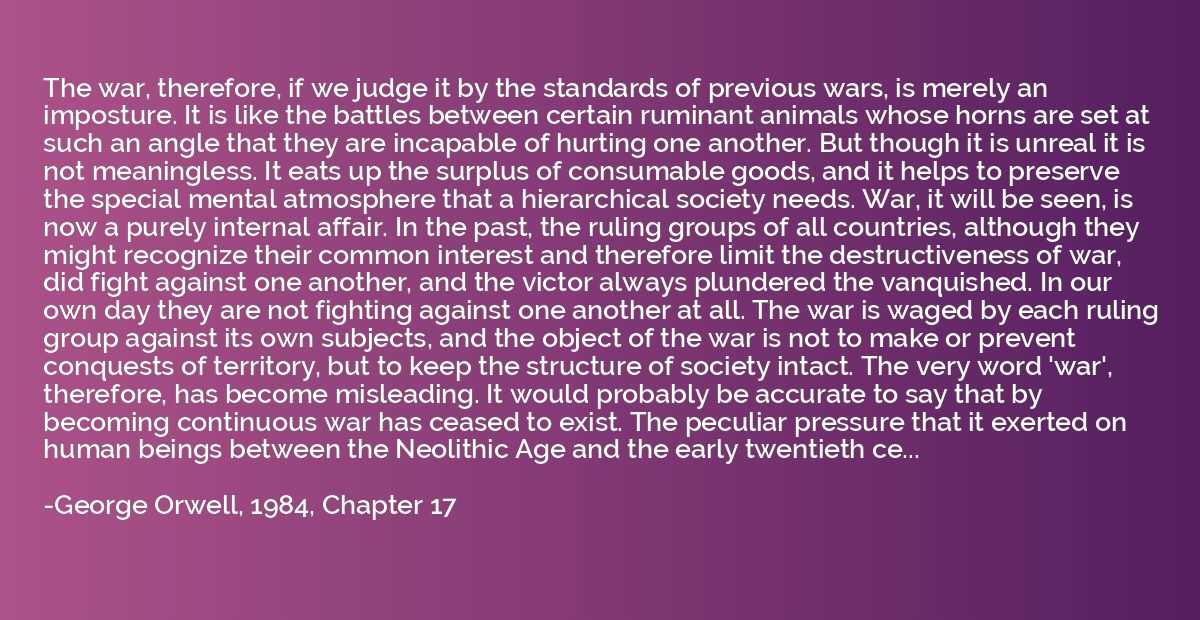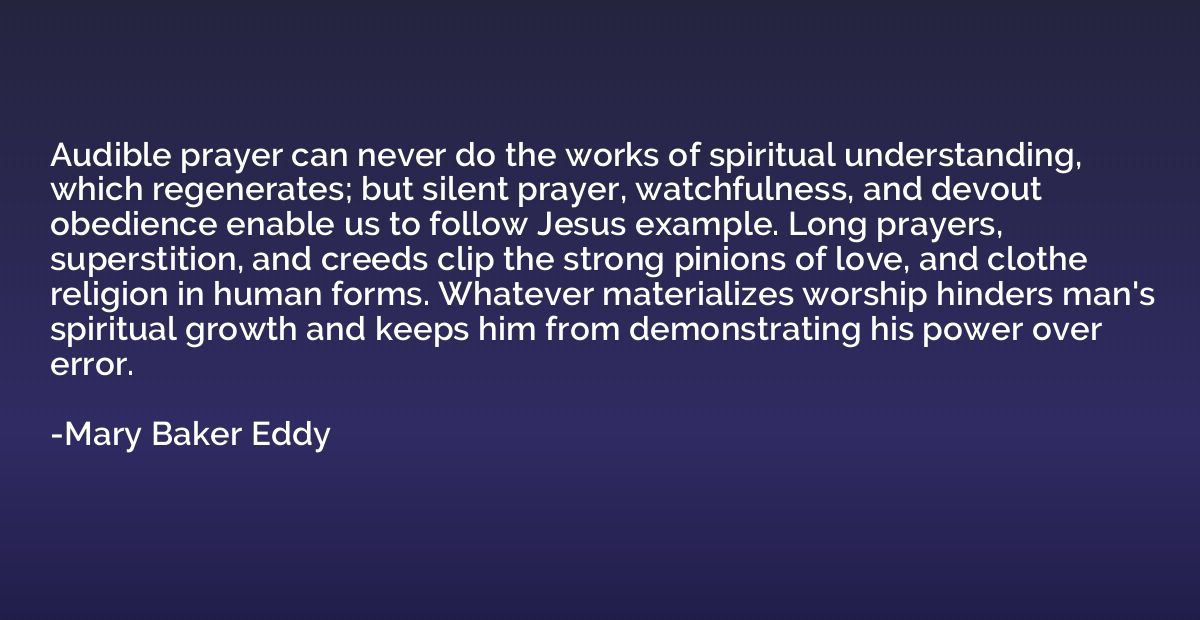Summary
This quote suggests that many people view the past as something that is filled with regret, mistakes, or missed opportunities. It implies that people tend to dwell on and feel remorseful about what has already happened. On the other hand, the future symbolizes hope and an opportunity to try new things, take chances, and learn from past experiences. It implies that people approach the future with an open mindset, willing to take risks and embrace uncertainty in order to explore and discover what may lie ahead.
By Mark Twain
